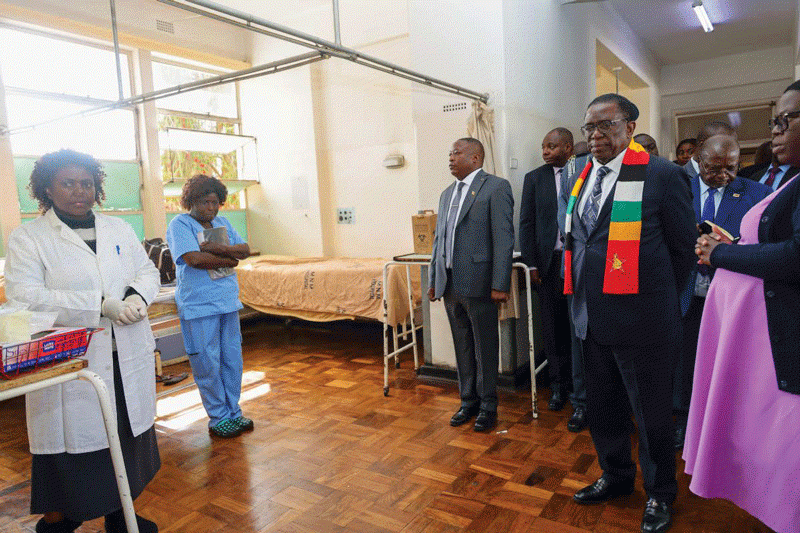
in the groove…with Fred Zindi
The coronavirus pandemic has wreaked havoc among many musicians since last year.
The government recently announced further restrictions on bars, restaurants, night clubs and other entertainment centres which are the main venues for many musicians because gatherings at such places are likely to attract crowds who will in turn spread the disease.
That means musicians are unable to earn a living through performances at these venues. What will happen to many musicians after the pandemic is over is anybody’s guess.
Quite a number of them are now seeking alternative ways of survival. Others have quit music altogether.
I bumped into three entrepreneurial musicians who have banded together to buy and sell timber at Mbare in order to make ends meet.
Others have resorted to selling their CDs on the streets. That is a difficult route if one is not a well-known or popular artiste. There are also others who are giving private online music lessons to would-be musicians at US$5 an hour.
One female musician I came across was also selling doilies at a street corner.
- Chamisa under fire over US$120K donation
- Mavhunga puts DeMbare into Chibuku quarterfinals
- Pension funds bet on Cabora Bassa oilfields
- Councils defy govt fire tender directive
Keep Reading
A very good keyboards player who had abandoned his car maintenance job five years ago to become a full-time musician is now back at it. Different strokes for different folks.
However, there are some musicians who think that leaving the country will give them a better life, but the situation brought about by Covid-19 is all over the world and they may not be aware of it.
Depending on how desperate they are, they will try everything within their power to get to those destinations they think are better places.
Quite a few female musicians have left Zimbabwe to seek better fortunes.
We have the likes of Eve Kawadza (now married to Jamaican Noel Blair and living in Orlando, Florida), Claire Nyakujara, a solo artiste at Disneyland, Cindy Munyavi and Fatima Katiji, aka ‘Stimela’ (former member of Jah Prayzah’s Third Generation Band and backing vocalist-cum-dancer) who are all now comfortably settled in the United States.
Some have quit the industry altogether while others are seeking alternative ways of making it.
A good example is Diana “Mangwenya” Samkange, who is now into agriculture. Now, no longer on stage or in the spotlight, she is settled at her farm in Mazowe district. The coronavirus lockdowns stopped large gatherings and events such as concerts, thus forcing Samkange to look at other ways to make a living.
When asked why she had diversified from stage performances to agriculture, this is what Samkange had to say:
“During the lockdown, I learned one thing that I didn’t know over the years: You will never go wrong with agriculture. People will always eat. People will always want farm produce. That business, for me, is quite stable. It will bring income; I now know that money comes from the soil to also do other things — to boost my music business,” she said.
“I have found that there is stability in agriculture at the moment more than the music side,” she added. “But I am saying given the two, I am definitely going to be biased because I am a musician. That defines who I am. I am Diana who sings. So, music is going to be my first love, but I need to survive.”
This sums it all for her and other musicians who do not know which direction to go.
Indeed, in adverse circumstances which have befallen many musicians, other routes may become the best choices. As is often said, desperate times call for desperate measures.
The other day, gospel musician Tatenda Mahachi came to my office to ask for advice on whether he should enrol at one ‘predator’ university which was offering him online degree courses in Social Welfare at a cost of US$30 000 per year. I told him not to waste his money because this particular university is not recognised anywhere in the world. So his ‘qualifications’ at the end of the programme would become useless. The university is known for enrolling anyone even without O’levels as long as they have money to pay and will send its students some re-cycled notes from the 1960’s for a fee and call it online learning. I even went further to tell Mahachi to check with the chief executive officer of the Zimbabwe Council for Higher Education (ZIMCHE), Professor Peter Dzvimbo, in order for him to verify that what I was telling him was true. So many people have been conned by this particular ‘university’ and have lost their valuable dollars this way. He was thankful, but insisted that he wanted to leave the country. He is now in the process of applying for a Canadian visa where he hopes to start something musical out there. I wish him luck.
Zimbabwe’s musicians have been struggling to make a living since the coronavirus pandemic prompted the government to ban concerts and other forms of entertainment which attract crowds in order to prevent the spread of the virus.
Executive director of Zimbabwe’s National Arts Council, Nicholas Moyo, says he does not know when the ban on live performances will be lifted. But, he says, Zimbabwe’s government recognises the plight of musicians who have been unable to work because of the lockdowns. He also advises Zimbabwean artistes to look for alternative ways of making a living. .
Independent Harare-based economist John Robertson says authorities need to increase financial support for the vulnerable.
“So, it’s really up to an individual if you find yourself in a difficulty. There is nobody who (is) going to come and help you. Certainly not officials,” Robertson said.
“So, you have to be resourceful for your own sake. And you can bring the rest of the family and say: Let’s work together and add to the income of the family with small things each family can do,” he added. “And the resourcefulness of people … of people of Zimbabwe has been absolutely amazing and it is going to amaze us even if Covid-19 lasts for a long time.”
I am not sure whether the bands and groups that we have known in the last two years will ever come together again after Covid-19.
Quite a number of musicians are now disillusioned. Their work is on the stage and without that, they are beginning to lose hope and starting to look for alternative means of survival.
Two young musicians (names given) have decided to go and try their luck in South Africa. “We hear that although there are difficulties in crossing the border right now, things are better over there. We were promised a stimulus package by the government butnothing has come to us yet. It’s been a year now and it looks like we are going to wait forever. We are hungry here in Zimbabwe and we are determined to leave the country. Even if it means crossing the border illegally, we are going”, they said.
What several musicians do not realise is the fact that this pandemic is everywhere. They are likely to meet the same situation as in Zimbabwe wherever they go in the world. The coronavirus restrictions apply in so many countries throughout the world .
However, although travel regulations keep changing, international travel can be tricky. Some land borders are closed, except for cargo transport and other authorised persons.
Please do not ask me how those who have left the country did it. All I can tell you is that the situation here must have been so desperate that their only option was to seek alternative ways of making a living. As I said, the rules keep changing. In other countries, those who have been vaccinated and can prove it, are allowed to travel to other destinations if the host countries agree to let them in.
Government, corporates, NGOs and other well-wishers must seriously think of keeping musicians in this country together. They should create a ‘GO FUND ME’ platform specifically designed for these artistes. Those who have remained in the industry are hopeful that one day things will come out right, but they don’t know when.
Music is important, not only to Zimbabwe, but to the rest of the world. Every culture in the world has its own form of music that is enjoyed by all ages on every continent.
Although each culture is different, music unifies all races (look at Master K.G.’s Jerusalema) and has been used throughout history for different occasions and for enjoyment purposes. Let us assist our musicians before they all quit the industry.
- Feedback: [email protected]











